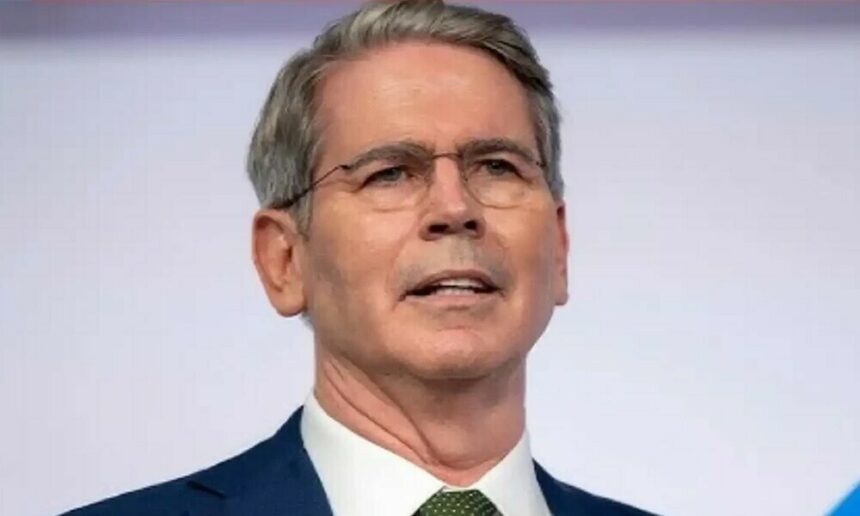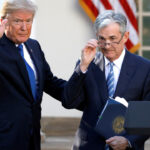Optimism Emerges in High-Stakes U.S.-China Trade Standoff
U.S. Treasury Secretary Scott Bessent has expressed optimism about the potential for a sweeping new U.S.-China trade agreement, describing it as a “big deal” opportunity—if China is ready to rebalance its economy. Speaking at the Institute of International Finance (IIF) conference on Wednesday, Bessent emphasized that both nations stand to benefit from structural economic changes.
“There is an incredible opportunity for a significant agreement, if China is serious about rebalancing its economy,” Bessent said. “China needs to change. The country knows it needs to change. Everyone knows it needs to change. And we want to help it change—because we need rebalancing, too.”
Tariff War Intensifies as Both Sides Retaliate
Bessent’s remarks come amid a deepening U.S.-China trade war, as the world’s two largest economies continue to impose heavy tariffs on each other’s goods. President Donald Trump’s administration has introduced import taxes of up to 145% on a broad range of Chinese products, a move aimed at boosting American manufacturing and protecting domestic jobs.
In response, China has retaliated with tariffs of up to 125% on U.S. exports, escalating a conflict that has spooked investors and disrupted global supply chains.
A Strategic Economic Shift for Both Nations
During his speech, Bessent outlined how the U.S. is aiming to pivot toward a more manufacturing-focused economy, while encouraging China to reduce its dependence on export-led growth.
“There is an opportunity for a big deal here,” Bessent reiterated. “If China is genuinely committed to transitioning toward a domestic-driven economy, and the U.S. is focused on strengthening its manufacturing sector, then we should be leading this transformation together.”
This vision aligns with longstanding calls from global economists urging China to boost domestic consumption and reduce reliance on overseas markets.
Market Reacts Positively to Hints of Trade De-escalation
Markets responded favourably to Bessent’s remarks and similar statements from President Trump, who said he believes the trade tensions could ease soon. Trump suggested that the current tariff levels “won’t be zero” but will “come down substantially” if a deal is reached.
On Wednesday, U.S. stocks rallied on hopes of a resolution in the U.S.-China trade dispute, highlighting the growing investor appetite for stability and predictability in international trade relations.
Bessent Criticizes IMF and World Bank for Mission Drift
Beyond trade policy, Bessent also used his platform at the IIF to call for reform within major global financial institutions. He criticized the International Monetary Fund (IMF) and the World Bank for focusing too heavily on “vanity projects” such as climate change, gender equality, and other social initiatives.
“These issues are not the IMF’s mission,” he said, urging both institutions to refocus on their core mandates of economic stability and development.
Despite his criticisms, Bessent clarified that the U.S. has no intention of withdrawing from these organizations. Instead, the Treasury will use its influence to push them “to accomplish their important mandates.”
Support from Global Leaders for Refocused Financial Priorities
Bessent’s comments drew support from several financial leaders, including Bank of England Governor Andrew Bailey, who said he was “very frankly encouraged” by the remarks. While some observers expressed concern over side-lining broader global issues, others welcomed a renewed focus on fundamental economic goals.
Looking Ahead: Can U.S.-China Trade Relations Be Repaired
The latest developments signal a possible shift in the tone and trajectory of U.S.-China trade relations, which have been locked in a bitter and costly standoff. With both sides suffering economic consequences, analysts say the timing may be right for a new deal—particularly if both nations are genuinely ready to implement long-term reforms.
As the U.S. and China prepare for upcoming diplomatic meetings, all eyes will be on whether these encouraging words turn into concrete progress. A breakthrough in the U.S.-China trade talks could not only stabilize global markets but also redefine the rules of international commerce in the years ahead.






